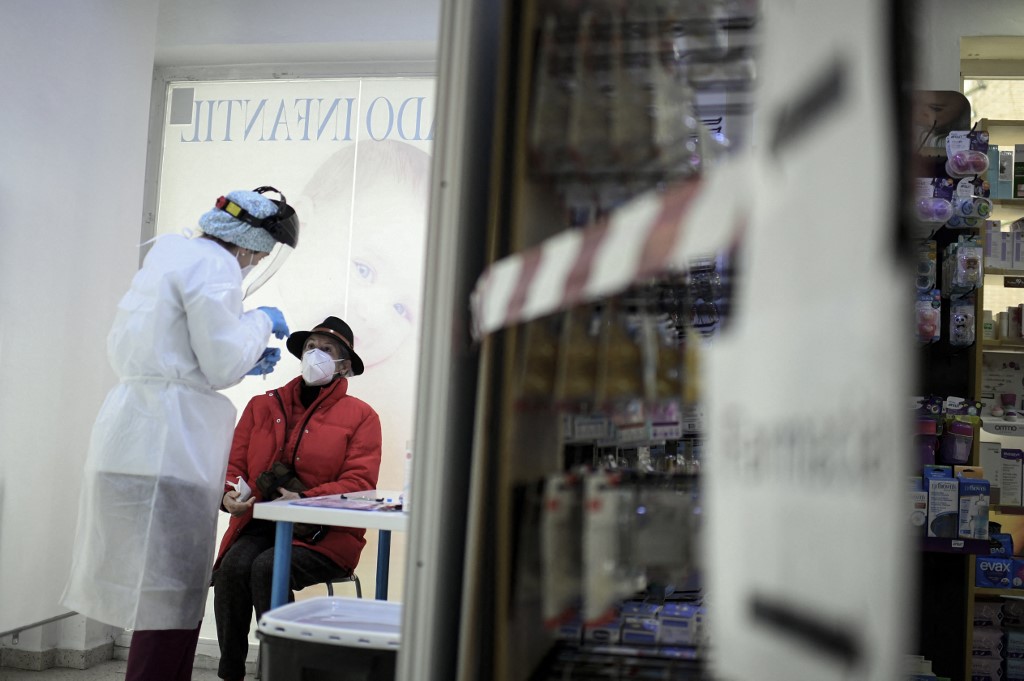Spain recorded another 16,402 cases in the last 24 hours, taking its overall figure to 3,005,487. Seroprevalence studies, which test for antibodies using a blood serum sample, suggest the real figure is far higher.
Over the same 24-hour period, Spain also saw another 766 deaths, bringing the overall toll to 63,061 in the nation of some 47 million people.
Datos sobre #COVID19 en España, desde el primer caso inicial, actualizados a hoy martes, 9 de febrero:
▶️Confirmados por PCR: 3.005.487
▶️Fallecidos: 63.061Información por CC.AA: https://t.co/qunpvMMtlv pic.twitter.com/5TzpTdXwRf
— Salud Pública (@SaludPublicaEs) February 9, 2021
Spain became the first European country to record a million coronavirus infections on October 21, and reached the two million mark on January 7.
Infections then increased by another million in just over a month.
But in mid-December, a seroprevalence study suggested around 4.7 million people had been infected by the virus — some 10 percent of Spain's population.
Spain saw a surge in infections at the start of the year, with health officials blaming an easing of restrictions over the Christmas holidays.
Since then, the incident rate has started to come down as regional governments, which are in charge of health care, have cracked down.
So far, Spain has not seen a major surge in new variants but has imposed a ban on arrivals by air from Britain, Brazil and South Africa which on Tuesday was renewed until March 2nd.
The fear is these variants could spread more rapidly or contain mutations allowing the virus to bypass vaccines.
On Friday, Spain confirmed its first case of the Brazilian variant. It has so far confirmed several cases of the South African variant and around 480 cases of the variant discovered in Britain in November.
Officials believe the British variant could become the dominant strain in Spain by March.
Spain has so far vaccinated just over two million people since it began its immunisation campaign at the end of December.
Prime Minister Pedro Sanchez's government has vowed to have covered 70 percent of Spain's population by the summer's end, a goal reaffirmed by the government despite shortages and delays in vaccine supplies.
READ ALSO:



 Please whitelist us to continue reading.
Please whitelist us to continue reading.
Member comments